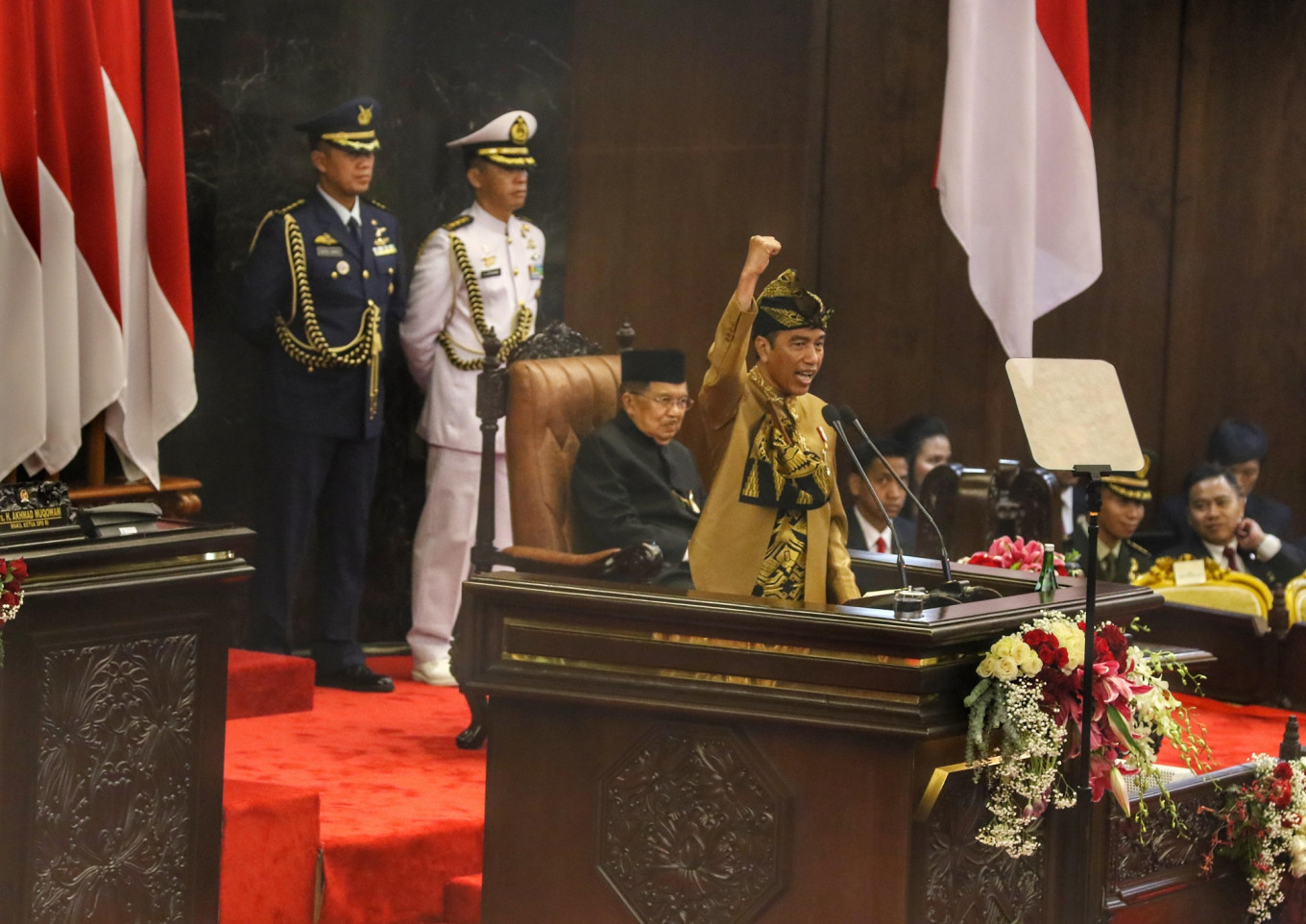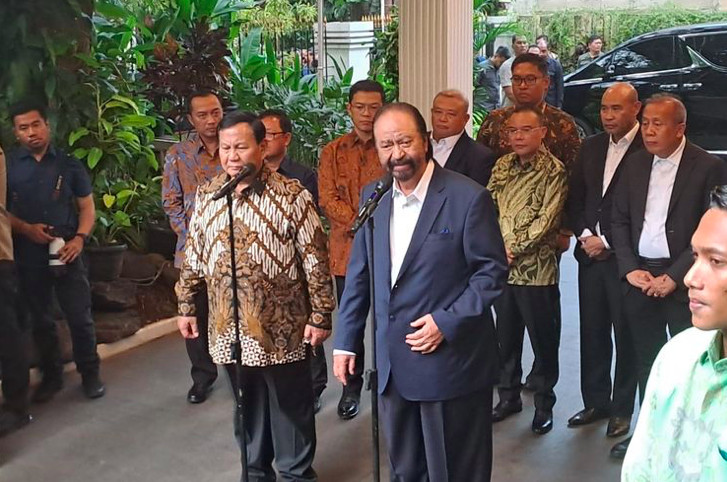Escaping the mediocrity trap
For decades, Indonesia has practically been competing with itself and, seeing the glass half-full, it has made some progress. The nation, however, is still lagging behind some of its closest neighbors.
Change Size
 Standing at the podium in House of Representatives complex, Jokowi donned a golden-colored attire with black-god sarong and traditional headband, which originates from West Nusa Tenggara. (JP/Dhoni Setiawan)
Standing at the podium in House of Representatives complex, Jokowi donned a golden-colored attire with black-god sarong and traditional headband, which originates from West Nusa Tenggara. (JP/Dhoni Setiawan)
I
n his State of the Nation address before the People’s Consultative Assembly on Friday, President Joko “Jokowi” Widodo aptly said: “It is not enough that we are only better than before. We have to be better than others. Again, it is not enough that we are only better than before. We have to be better than others.”
It is clear why Jokowi needed to repeat the message. For decades, Indonesia has practically been competing with itself and, seeing the glass half-full, it has made some progress. The nation, however, is still lagging behind some of its closest neighbors.
The 2019 Global Talent Competitiveness Index released by graduate business school Insead places Indonesia at 67th, up 10 places compared to the previous index. But despite the remarkable improvement, Indonesia remains a mediocre country.
The index surveyed 125 countries only and still considered Indonesia’s neighbors — Thailand ( 66th ), Malaysia ( 27th ) and Singapore ( 2nd ) — as more competitive. To put things in perspective, Singapore and Malaysia scored 81.82 points and 58.62 points respectively, while Indonesia only scored 38.61 points.
Indonesia also climbed two places in the World Economic Forum’s 2018 Global Competitiveness Index from 47th to 45th, but, again, it still failed to beat the three neighbors: Singapore ( 2nd ), Malaysia ( 25th ) and Thailand ( 38th ).
In his speech, Jokowi outlined his global vision for Indonesia, highlighting the need for the nation to be less insular and face global competition that has become only fiercer. Indonesian talent, he said, should have “good international reputations”. Indonesian companies, including the state-owned ones, he added, should be more “expansive, from local to global”.
Human development is thus a priority in his 2020 state budget. The President has increased the budget allocation for education from Rp 488.4 trillion (US$34.3 billion) to 505.8 trillion. Some of the funds will finance Jokowi’s new flagship programs: the Indonesia Smart Card for University Students (KIP Kuliah) and the preemployment card.
Jokowi has also recently launched a policy granting double income tax deductions for companies offering vocational training and apprenticeship programs for job seekers and triple tax deductions for expenditure on research and development.
Indonesia will be experiencing a demographic bonus between 2020 and 2030. Shifting the focus to human capital development is a necessity, not only to enable the country to make, quoting Jokowi, a “leap of progress”, but also to prevent demographic disasters where productive-age Indonesians become a liability instead of an asset.
Jokowi is facing an uphill battle to realize his vision, which entirely depends on whether or not he could reform the nation’s education system to produce quality human resources and bureaucracy to boost investment and create more jobs.
But the President was right when he said that he alone would not be able to turn Indonesia from a complacent and mediocre nation into one that needs to be reckoned with. The people must also play their part to make Indonesia competitive and, eventually, a great nation.









